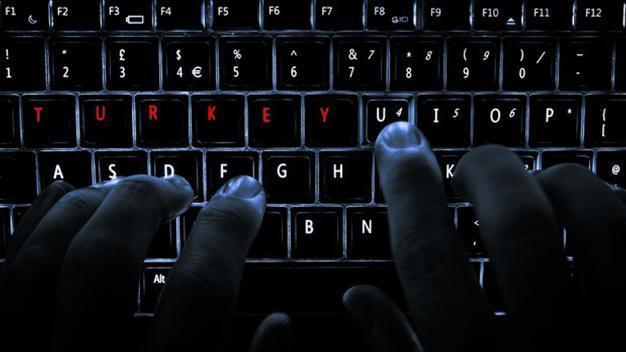Turkey rated ‘not free’ in internet freedom in new Freedom House report
ISTANBUL
 Internet freedom in Turkey has been rated “not free” in the latest annual report by the Washington-based watchdog Freedom House, a downgrade from its “party free” status last year.
Internet freedom in Turkey has been rated “not free” in the latest annual report by the Washington-based watchdog Freedom House, a downgrade from its “party free” status last year. The “Freedom on the Net 2016” report gave Turkey a score of 61 out of 100, down from 58 last year, with a higher score marking a decline in internet freedom.
Covering events between June 2015 and May 2016, the Freedom House report noted that mobile and internet connections were repeatedly suspended in Turkey’s southeast amid ongoing security operations against the outlawed Kurdistan Workers’ Party (PKK).
“Internet freedom declined in Turkey in 2015-16 amid network shutdowns, social media blocking, lengthy prison sentences, and nationwide cyberattacks. General elections in June and November of 2015 heightened tensions in the country, which were further exacerbated by a series of deadly terrorist attacks. Authorities hastily introduced gag orders on the dissemination of images and videos of the bombings, resulting in the blocking of hundreds of URLs,” the report stated.
“Access to Facebook, Twitter, and YouTube was repeatedly throttled until the companies removed controversial content. Specific hashtags related to the bomb sites, like #Istanbul, #Ankara, and #Diyarbakir, were temporarily filtered from Instagram. Counterterrorism operations in the southeastern region of the country repeatedly resulted in the suspension of 3G networks, affecting millions of residents for days at a time,” it added.
Social media and websites were also repeatedly blocked in an increasing trend of limiting content by the Turkish authorities, the report noted.
“Limits on content continued to increase in Turkey over the past year. Prompted by a series of deadly terrorist attacks, the government repeatedly blocked or throttled social media platforms in a bid to halt the dissemination of images and videos surrounding the events. In addition, scores of news sites and Twitter accounts were blocked or removed, particularly those covering the conflict with Kurdish militants. Journalists, scholars, and public figures that are critical of the government faced coordinated harassment by pro-government trolls on Twitter,” the report said.
It also highlighted that several individuals were sentenced for allegedly “insulting” public officials or spreading terrorist propaganda, along with journalists and public figures targeted for critical non-violent speech on controversial issues.
“While prison sentences for online speech have been rare, several individuals were sentenced to lengthy terms over the past year for allegedly insulting public officials or spreading terrorist propaganda. Journalists, public figures, and young students have been targeted for nonviolent speech that is critical of the government or touches on controversial issues of Kurdish identity. Surveillance remains a key issue, but cybersecurity made headlines over the past year amid a massive leak of Turkish citizens’ personal data and a nationwide cyberattack that brought down thousands of websites, including retail banking infrastructure,” the report said.
According to the Freedom House report, overall internet freedom around the world declined in 2016 for the sixth consecutive year.
















